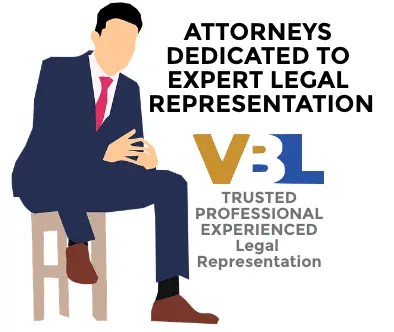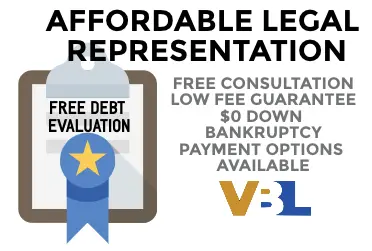
• If you need to stop a Wage Garnishment.
•If you Are behind on federal or state taxes.
•When you have Assets that you want to protect.
•When you re behind on your car payment.
•If you are facing vehicle repossession.
•If you are looking at a foreclosure or are behind on a mortgage.
*In Nevada, a Chapter 13 bankruptcy remains on a credit report for seven years.
In a Nevada Ch 13 bankruptcy you can repay on your debts at an amount you can afford based on your budget. If you do not qualify for a Chapter 7, you can still protect yourself under bankruptcy using a Chapter 13. Contact our Pennsylvania Ch 13 bankruptcy lawyer.
In a chapter 13 ourPennsylvania bankruptcy attorney can stop garnishments quickly (same day if applicable). Also, in a Ch 13, it protects all of your property from creditors. Additionally, we can stop a home foreclosure or a vehicle repossession. Plus, Ch 13 is the plan to resolve income tax debts.
Many people use this bankruptcy to catch up on property taxes, vehicle loans, or your mortgage. Also, in aPennsylvania Ch 13 bankruptcy we may even be able to recover cars that have already been repossessed. Therefore, Contact our experienced ch 13 BK attorney for a better understanding of the many benefits a chapter 13 bankruptcy may provide.
ANSWER:
Chapter 13 reorganizes your debts into a payment plan that will last either 3 or 5 years. The length of your payment plan will depend on whether you fall above or below the state median income level. Those who fall above will have a 3-year payment plan, and those who are above it will have a 5-year plan. Like in a Chapter 7, a trustee will oversee the case, and the filer will be required to attend a 341 Meeting of Creditors.
ANSWER:
The biggest and most obvious differences between the two chapters is that Chapter 7 does not require repayment of debts, and a Chapter 13 lasts much longer than a Chapter 7. A Chapter 7 will remain on your credit for longer than a Chapter 13. You will need to attend an additional hearing besides the 341 Meeting of Creditors required in a Chapter 7. Some debts can be discharged in a Chapter 13 that can’t be discharged in a Chapter 7.
ANSWER:
Like in a Chapter 7 Bankruptcy, you will need to prepare a petition that outlines your financial situation. You will also need to provide a proposed payment schedule when you file your bankruptcy. You will need to begin payments to your trustee within 30 days of filing, regardless of if you plan has been confirmed or not. You must also take your credit counseling courses as in a Chapter 7.
ANSWER:
You will need to attend court twice when you file Chapter 13 Bankruptcy in Nevada. As in a Chapter 7, you will need to attend a 341 Meeting of Creditors. You will also need to attend a confirmation of your payment plan.
ANSWER:
The filing fee for a Chapter 13 Bankruptcy in Nevada is $310. Attorney’s fees for a Chapter 13 are much higher than the filing fee, and will typically be higher than those for a Chapter 7. Your attorney may agree to file your case for a nominal sum down and work the rest of the fees into your payment plan.
ANSWER:
Your employer will only be notified if you need to provide them with your case number to stop a wage garnishment. Your creditors will all be notified of your bankruptcy, along with any cosigners on your financed assets. Your spouse will not receive official notice when you file, but it will be impossible to file without their knowledge.
ANSWER:
Like in Chapter 7 Bankruptcy, the affect that Chapter 13 will have on your credit will depend on your credit before filing. Because your debts will be repaid in a Chapter 13, the chance of negative impact is far less in a Chapter 13 than in a Chapter 7.
ANSWER:
A Chapter 13 Bankruptcy will remain on your credit for 7 years from the date of filing.
ANSWER:
Your Chapter 13 Bankruptcy Repayment Plan will last 3-5 years. It will include unsecured debts like medical bills and credit cards, but also debts that can’t be discharged in Chapter 7, fees to the trustee, and possibly attorney’s fees. You will be able to include arrearages on debts like child support, alimony, and your mortgage and car payment. This allows you to more realistically catch up on arrearages and avoid foreclosure or repossession. Your mortgage payment may be included in some jurisdictions.
ANSWER:
A Chapter 13 Bankruptcy repayment plan will last 3 years if you make less than the state median income, and 5 years if you make more.
ANSWER:
You will have to pay as much debt as your disposable monthly income allows in a Chapter 13 Bankruptcy in Nevada. See the Means Test section above for more information on how to calculate disposable monthly income.
ANSWER:
You likely won’t need to pay the full balance of your credit card debt in a Chapter 13. This will depend on your income, how much credit card debt there is, and how much other debt (and the types of debt) you have.
ANSWER:
Student loans can only be discharged in bankruptcy in rare and extreme circumstances. If you do meet the requirements, you will need to use a separate bankruptcy procedure to discharge the loans.
ANSWER:
Your back taxes will be included in your payment plan. Having 3-5 years to repay them than whatever your original deadline was typically makes it much more feasible to get current. Paying debts like taxes in your plan will take precedent over unsecured debts like credit cards and medical bills.
ANSWER:
You need to remain current on your mortgage in a Chapter 13 if you wish to keep your home and to avoid your case being dismissed. Your mortgage payments will be included in your plan in some jurisdictions. In others, you will need to continue making your mortgage payments separately.
ANSWER:
It won’t be impossible to buy a home while in an active Chapter 13 Bankruptcy, but it will be difficult. You will need to otherwise qualify for a government-backed home loan, make all of your plan payments on time, be in your bankruptcy for at least one year, and receive approval from your bankruptcy trustee.
ANSWER:
Filing Chapter 13 Bankruptcy without an attorney is simply unadvisable. More than 99% of Chapter 13 Bankruptcies that are filed pro se, or without attorney representation, end up being dismissed. Chapter 13 is a 3-5 year process, and having your case dismissed after paying the filing fee and monthly payments for it simply to be dismissed is a waste and a risk you shouldn’t take. Your attorney may be willing to negotiate a low down payment and include your attorney’s fees in your payment plan, so don’t immediately rule out hiring an attorney without speaking to one first.
Our Pennsylvania Chapter 13 Bankruptcy Lawyers is a bankruptcy law firm dedicate themselves to helping Nevada residents in times of extraordinary economic hardships. Also, our ch 13 bankruptcy attorneys understand that clients take filing bankruptcy as a serious decision. Let our Chapter 13 bankruptcy law firm give you the information you need and the understanding of your debt and the bankruptcy process to help you make the right move to relieve your debt. Declaring bankruptcy in Pennsylvania is a bit complicated, and can be overwhelming. Ch 13 bankruptcies are even more complex and you should have the assistance of a seasoned Nevada ch 13 bankruptcy attorney. We are here to help.
Many clients we serve really don’t want to file bankruptcy. In fact, many are just victims of bad circumstances. Thus, we will explore all debt relief options and let you consider which means of eliminating your debt is the best for your situation. Additionally, in discussing your debt relief options, we can help you come to a determination and work toward your financial goals.

Our Pennsylvania Bankruptcy Lawyers has a reputation for providing Nevada and Pennsylvania clients with legal service at an affordable cost. Our attorneys have expertise in the Nevada bankruptcy law and our experience filing bankruptcy cases in Pennsylvania. Thus, we want to ensure that bankruptcy is indeed the most beneficial way to handle your debt. We also offer a FREE consultation and debt evaluation that can be done in office, or over the phone. Contact our Clark County debt relief law firm and get the assistance your seek.
A Ch 13 bankruptcy is different from a Chapter 7 bankruptcy filing. It is the second most popular bankruptcy chapter filed in Nevada. Thus Ch 13 may be a better option for those who have a regular income. When a Chapter 13 petition is filed in Nevada, the automatic stay immediately stops certain creditor actions: vehicle repossession, foreclosure, wage garnishment, and any attempts by creditors to collect a debt. Pennsylvania bankruptcy lawyer Erik Severino has filed hundreds of Ch thirteen bankruptcies for individuals and families in Pennsylvania and throughout Nevada.
Additionally, we devise a plan and file with the federal bankruptcy court in a Chapter thirteen. In this plan, the debtor agrees to pay debts such as mortgages or car loans. Also, the plan outlines a schedule of affordable monthly payments over a three to five year period of time to repay creditors. Plus, a trustee is appointed to Chapter thirteen cases, and is involved in the bankruptcy process. In other words, ourPennsylvania Ch 13 BK Lawyers will work with you throughout the entirety of your Ch 13 case.
In the arranged and agreed upon payment plan in a Ch 13, the payment can be as low as $100 per month. Factors that determine monthly payments include the filer’s debt, income, financial situation, and assets. Because each Ch 13 case is individual and has unique circumstances, our Chapter 13 bankruptcy attorneys can give you an approximate amount for your plan payment.
Additionally, a Ch 13 bankruptcy allows you to keep property (home, other assets, vehicle) in exchange for the payments made per your Ch 13 payment plan. This chapter bankruptcy offers many benefits: save your house from foreclosure, pay off back taxes, reduce high interest car loans. Discuss your debt with our firm and Pennsylvania Bankruptcy Lawyers can give you expert legal advice on which chapter of bankruptcy best suits your specific case.
* We are a debt relief agency. We help people file for bankruptcy relief under the Bankruptcy Code.